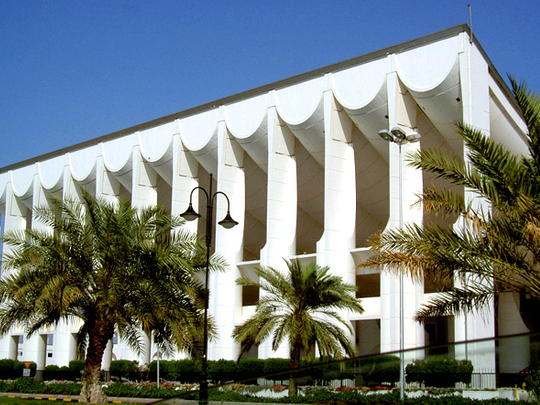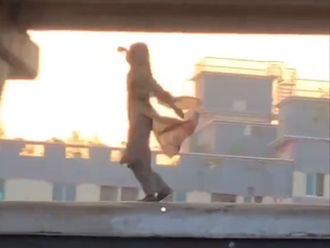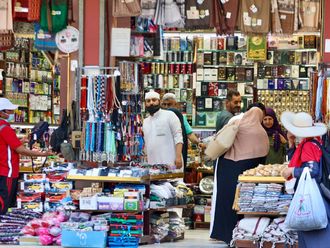
Kuwait City: On Tuesday, Kuwait’s recently formed government, headed by Prime Minister Sabah Al Khaled Al Sabah, took the constitutional oath in front of parliament despite the absence of 27 MPs who intentionally boycotted the session to register their discontent with the government’s lack of cooperation on various fronts.
The session was the first to be held since January after the previous government resigned and parliament was suspended for a month as per an Amiri decree.
Although 27 MPs initially boycotted, three excused themselves from the session bringing the total absent MPs to 30. But, the session moved ahead as scheduled as 34 members attended, a combination of the 16 appointed ministers and 18 MPs.
The MPs who boycotted the session held a sit-in on Tuesday morning in front of parliament to voice their objection to moving forward with the session.
While there is no unanimous reason for boycotting the session, since the parliament was formed after the December 5 general election there have been clashes between the legislative and executive branch creating a political deadlock.
Interrogation of Prime Minister
Several topics were on the agenda, one of which was to discuss two motions filed to interrogate Sabah Al Khaled; 29 of the 34 MPs who were present agreed to postpone the motion to interrogate the Prime Minister.
The first motion was filled by MP Bader Al Dahoum and MP Mohammed Al Mutair on March 8, less than a week after the government was formed. The announcement came after 15 MPs, including Al Dahoum and Al Mutair, were referred by the government to the public prosecutor for violating health measures and holding a large gathering of approximately 300 people.
The second motion was filled by MP Hasan Jowhar, MP Muhannad Al Sayer and MP Muhalhal Al Nisf for “breaking the promise to work towards amending several laws from those that concern freedom of expression to the electoral law,” Jowhar said during a press conference.
Revoking membership
During the session, MP Al Dahoum’s membership from parliament was officially revoked after Kuwait’s constitutional court issued a ruling, two weeks ago, which annulled his membership on a previous case where Al Dahoum was charged with “insulting the Emir”.
The court revoked Al Dahoum’s membership as per a 2016 law that states anyone convicted of insulting the Emir will be barred from partaking in the parliamentary elections.
The ruling against Al Dahoum will likely further fuel the divide between the legislative and executive branch, as he is a staunch critic of the government and is one of the most prominent figures of the opposition.
Laws passed
Given that 34 members attended Tuesday’s session, the parliament went on to vote on various draft laws.
The amnesty law, which calls on pardoning political activists and former politicians, was rejected after 27 of those present voted against it.
As for the laws that were passed, the parliament approved delaying loan instalments for another six months after 33 of those present voted in agreement. In addition, the majority also voted for a law that supports and ensures the financing of local banks for clients affected by the COVID-19 pandemic.
Parliament also approved a law to amend the press and publications law.
Boycott of session
Leading up to Tuesday’s session, 32 MPs publicly stated they will be boycotting the proceedings. On Sunday, 24 MPs attended a meeting at MP Al Dahoum’s office and issued a statement after the meeting stating that “32 MPs have pledged to boycott the session, now it is up to the Kuwaiti people to monitor and hold accountable those that do not fulfil their promises.”
The statement also said the MPs will be not attending the session due to the public’s demand, their respect for the 1962 constitution and in remembrance of the MPs who took the same position back in 1964.
Then, on Monday, Emir Sheikh Nawaf Al Ahmed Al Sabah, called for giving sufficient time to the newly approved government to perform its role in light of the current conditions, Kuwait’s state media KUNA reported.
Following the Emir’s message, two MPs retracted their stance on boycotting the session bringing the total number to 30.








